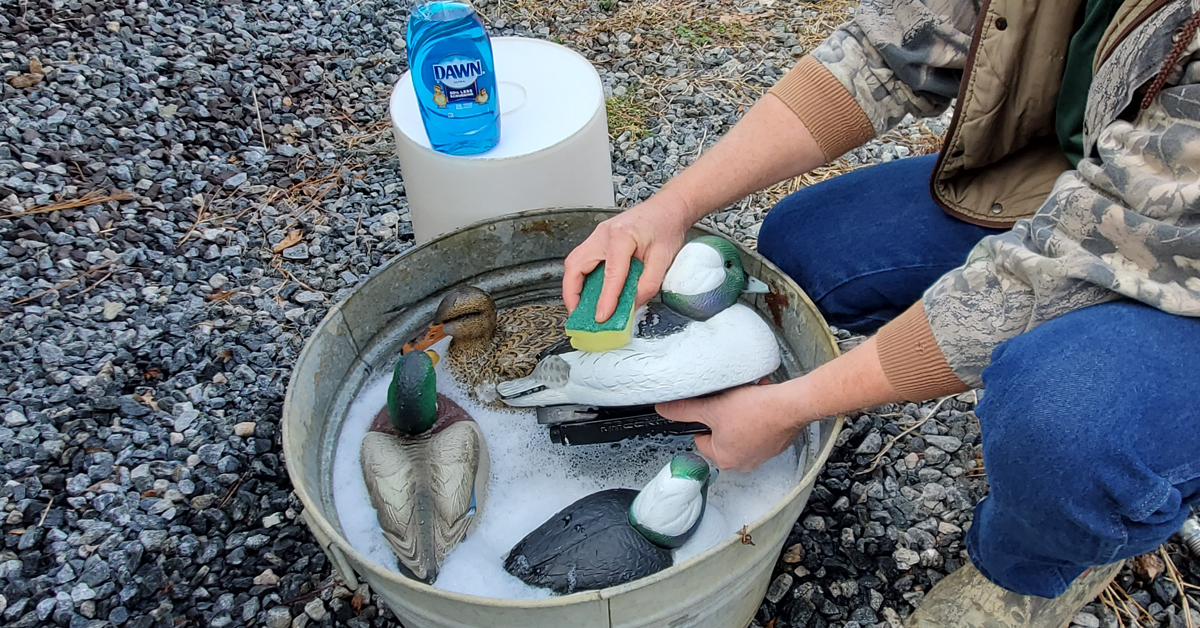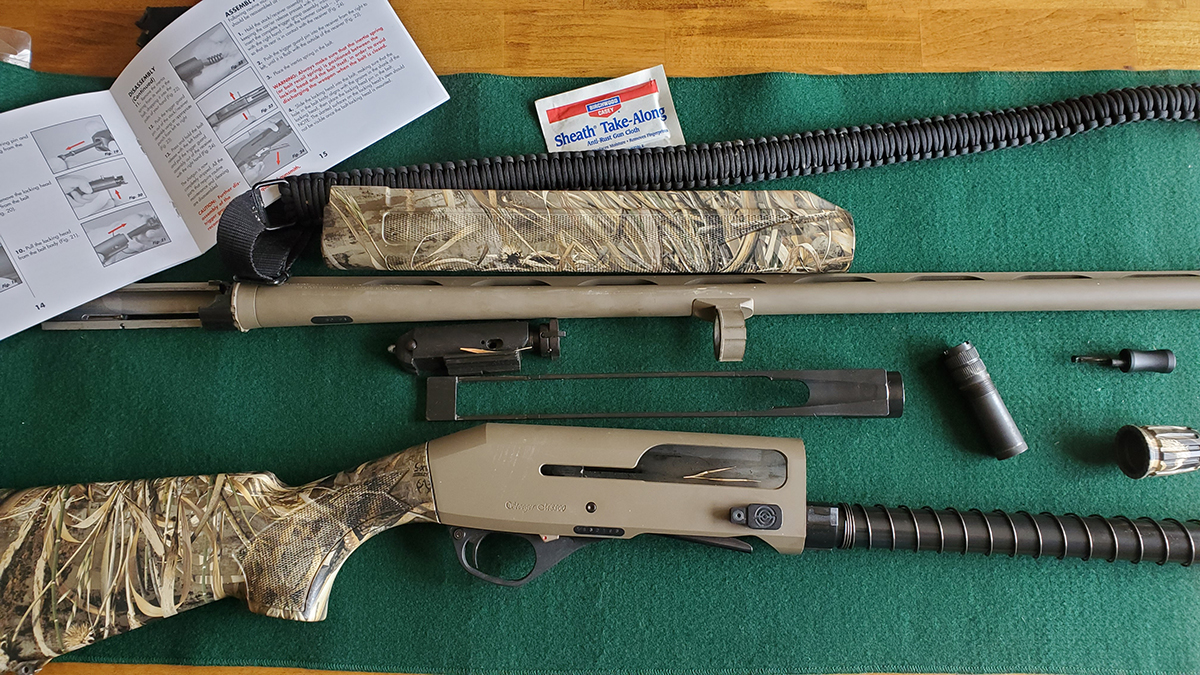
Cleaning and repairing your waterfowl hunting gear before you put it away can save time and money for next season.
By Mark Fike
Photos by Mark Fike
While the regulation book may say regular waterfowl hunting seasons are over, the season is not properly over until you have your gear ready for next season. There is a lot more to ending the season than simply tossing your waders, decoys and blinds in the garage, shed, or basement. So, what is left to do to flip the page to fishing and spring gobbler season?
Clean-up Time!
Cleaning decoys, layout blinds, waders and the rest of our gear is far easier when the mud and blood is still fresh. Once decoys sit in a barn, garage or shed all summer, the crud on them gets baked on by high temperatures.
When washing decoys, waders or other gear with mud or blood on it, use a detergent such as Dawn dish soap that is not harsh and won’t damage paint or fade colors of materials. Consider putting warm soapy water in a washtub and letting the decoys soak for an hour or so to loosen up the worst of the crud. Be sure to rinse all the soap off when done. Start with a soft sponge and if necessary use a soft bristled brush, being careful not to scrub off paint. While you are cleaning the decoys, untangle and untie knots in the decoy lines and remove any weeds you had on the lines. If your decoys need a touch-up of paint, you will see it now and can make time before the season comes back in to do that chore.
Wash off your waders and take the time to look for those seams that were seeping and make repairs on them now. Gear Aid’s Aqua Seal and Tenacious Tape are great for repairing waders. There is a cure time and now that the season is over you won’t need those waders tomorrow morning. Just be sure to take care of the leak soon, so they are ready this fall. Both repair products can be had for less than a $10 bill, but will save you from being cold and wet next year!
Be sure you completely dry your waders so they don’t get musty. To get the longest life from your waders, hang them on the hangers made for this in an area where the temperature is consistent, such as in your house. The extreme temperature differences and the mice that live in garages, attics, and barns are not good for waders!
Inspect Blinds
It goes without saying that our blinds always need some TLC. If you use layout blinds, inspect the foliage you use on them. Is it wet and moldy? If so, remove it and start fresh at the end of the summer. If the foliage is not moldy, keep it dry to keep from molding. Check to see if you will need more foliage before the season opens up so you can keep an eye out for replacements as the season approaches, not the night before! Last, empty the blind of trash, empty shotgun shells, and bottles.
If you use grass or burlap or other material to wrap around stakes or you have a stand-up blind that you sit in with your friends, inspect the connections, poles, and material for holes. Spray off any blood. Mud can be a good thing to help camo your set-up if it is the right color. Any parts that need replaced should be ordered or repaired now. As with layouts, get the mold off any material to avoid an allergy attack later. Store once dried completely.
Boats
Many of us run our boats hard while waterfowling and take them into really rough areas in bad weather. Check the propeller for damage. Be sure you store the boat and fuel properly if it is not going to be used for a few months. Some boaters winterize or fog their systems while others run the fuel out and then store it.
Regardless of the method you choose, be sure to top off the tank with non-ethanol fuel. Ethanol fuel creates a lot of problems for smaller engines, particularly if they sit. Air space in a tank above the fuel will allow the situation to get worse due to condensation. Check wiring and think about did not work well while duck hunting and address those issues. Batteries need to be maintained for the rest of the winter as well. Don’t leave them in a cold boat without a trickle charger connected.
Guns and Ammo
Many hunters remember to clean their gun, but few really think about their shells. We hunt in wet environments and often brackish water. Leaving shells in our coat pockets is a bad idea. The brass on the shells can start to corrode and the environment is not great for the rest of the shell either. Empty that coat out completely and wipe the brass or metal area of the shells off with an oiled rag.

Field-strip your shotgun to clean it thoroughly.
Our shotguns need close attention. Now is the time to get the owner’s manual out and field strip the gun completely. During our hunts, pieces of grass and mud can get into the action and cause jams later. Remove all such debris and then give the shotgun a good cleaning, paying particular attention to the crevices and spots that are hard to reach such as between the stock and barrel or receiver. Sometimes water gets into those places and starts to rust, which spreads.
If you have a blued barrel, be sure to use a good product such as Birchwood Casey’s SHEATH to protect the metal while you are storing it. Any repairs to your shotgun should be taken care of now before the rush starts in late summer. Don’t forget to remove the choke and clean the threads and oil them as well. Any moving part needs a light coat of oil.
Take the time now to properly put up your waterfowling gear so it is ready to go next season!

